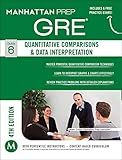Best State Comparisons to Buy in November 2025

GRE Quantitative Comparisons & Data Interpretation (Manhattan Prep GRE Strategy Guides)



Designing Experiments and Analyzing Data: A Model Comparison Perspective, Third Edition



Understanding Biblical Theology: A Comparison of Theory and Practice



Authentically, Uniquely You Study Guide: Living Free from Comparison and the Need to Please


![[OLD VERSION] TurboTax Home & Business 2024 Tax Software, Federal & State Tax Return [PC/MAC Download]](https://cdn.blogweb.me/1/41_DO_Hi8_M_Nh_L_SL_160_b9345dac3d.jpg)
[OLD VERSION] TurboTax Home & Business 2024 Tax Software, Federal & State Tax Return [PC/MAC Download]
- LIVE TAX ADVICE: GET ONE-ON-ONE EXPERT SUPPORT WHILE FILING TAXES.
- DISCOVER INDUSTRY-SPECIFIC DEDUCTIONS TO MAXIMIZE YOUR TAX SAVINGS.
- E-FILE W-2S AND 1099S EASILY WITH QUICK EMPLOYER FORMS FEATURE.
![[OLD VERSION] TurboTax Home & Business 2024 Tax Software, Federal & State Tax Return [PC/MAC Download]](https://cdn.flashpost.app/flashpost-banner/brands/amazon.png)
![[OLD VERSION] TurboTax Home & Business 2024 Tax Software, Federal & State Tax Return [PC/MAC Download]](https://cdn.flashpost.app/flashpost-banner/brands/amazon_dark.png)

A Guide book of United States Coins 2023: The Official Red Book


Both Georgia and Colorado have their own unique qualities that make them attractive to different people.
Georgia, located in the southeastern part of the United States, is known for its warm climate, southern hospitality, and rich history. The state boasts vibrant cities like Atlanta, which serves as a major economic and cultural hub, offering a variety of entertainment, dining, and career opportunities. Georgia is also home to beautiful, lush landscapes, such as the Blue Ridge Mountains and several national parks, providing outdoor enthusiasts with plenty of recreational activities. Additionally, Georgia has a diverse cuisine, known for its delicious Southern comfort food.
On the other hand, Colorado, situated in the western part of the United States, is renowned for its stunning natural beauty and outdoor recreational opportunities. The state is famous for its majestic Rocky Mountains, offering activities like hiking, skiing, and mountain biking. Colorado has a reputation for having over 300 days of sunshine per year, attracting those who enjoy outdoor adventures. The state's capital, Denver, is a bustling city that boasts a booming economy, a vibrant arts scene, and a lively sports culture, making it an attractive option for individuals seeking an urban lifestyle.
Ultimately, the choice between Georgia and Colorado depends on personal preferences and priorities. Some may be drawn to Georgia's rich history and Southern charm, while others may prefer Colorado's awe-inspiring landscapes and outdoor activities. It would be beneficial to consider factors such as climate, culture, cost of living, career opportunities, and recreational activities to determine which state aligns better with individual preferences and lifestyle.
What is the access to recreational amenities like in Georgia compared to Colorado?
In terms of recreational amenities, Georgia and Colorado offer different experiences due to their varying geographical features and climates.
Georgia offers a diverse range of recreational amenities such as beaches, state parks, historic sites, and golf courses. The state has beautiful coastal areas along the Atlantic Ocean, including popular destinations like Tybee Island and Jekyll Island, which provide opportunities for swimming, sunbathing, and water sports. Georgia also has several scenic mountains and forests in the northern part of the state, offering camping, hiking, and fishing opportunities.
On the other hand, Colorado is renowned for its stunning Rocky Mountains and offers exceptional opportunities for outdoor activities. The state is famous for its world-class skiing and snowboarding resorts, with destinations like Aspen, Vail, and Breckenridge attracting visitors from all over the world. Colorado also boasts numerous hiking and biking trails, national parks such as Rocky Mountain National Park, and picturesque lakes and rivers, making it a haven for adventure enthusiasts.
Overall, while Georgia offers a mix of coastal and mountainous recreational amenities, Colorado's emphasis is primarily on mountain activities due to its rugged and mountainous landscape. Both states have plenty to offer in terms of recreation, but the specific amenities differ based on their geographical characteristics.
How to compare the housing market in Georgia and Colorado?
Comparing the housing markets in Georgia and Colorado involves assessing various factors such as home prices, appreciation rates, affordability, demographics, and economic conditions. Here are steps to compare the housing markets in both states:
- Research Home Prices: Look at the average home prices in different cities or regions of Georgia and Colorado. Websites like Zillow or Realtor.com can provide median home prices for specific areas.
- Examine Appreciation Rates: Compare the historic housing price appreciation rates in Georgia and Colorado. Review data from the past few years to determine how home values have changed over time.
- Analyze Affordability: Assess the affordability of housing in each state by considering the median household income, cost of living, and average mortgage rates. This analysis will indicate the feasibility of purchasing a home in Georgia or Colorado.
- Evaluate Real Estate Market Conditions: Determine whether the housing markets in Georgia and Colorado are buyer's or seller's markets. Check factors like average days on the market, number of listings, and the ratio of buyers to sellers.
- Explore Demographics: Understand the demographics of potential buyers or renters in each state. Look for information such as population growth, employment rates, and migration trends to understand the demand for housing.
- Compare Tax Policies: Evaluate the tax policies related to homeownership, such as property taxes, homestead exemptions, and tax deductions, in both Georgia and Colorado. These policies can significantly impact the overall cost of owning a home.
- Consider Economic Indicators: Analyze the economic indicators of each state, including job growth, industry diversity, and GDP growth. A robust and diverse economy can positively influence the housing market.
- Seek Expert Opinions: Consult with real estate agents, economists, and researchers who specialize in the housing markets of Georgia and Colorado. Their insights can provide a comprehensive and professional analysis.
By following these steps, you can effectively compare the housing market in Georgia and Colorado, helping you make informed decisions regarding that market's suitability for your needs.
What is the weather like in Georgia and Colorado?
The weather in Georgia and Colorado can vary greatly due to their different geographical locations.
In Georgia, the climate is generally known for its hot and humid summers and mild winters. Temperatures can reach the high 90s (°F) in the summer months of June to August, while winter temperatures typically range from the high 30s to low 50s (°F) between December to February. Rainfall is spread throughout the year, with a higher chance of thunderstorms and showers in the summer.
In Colorado, the climate is more diverse depending on the region. Generally, the state experiences four distinct seasons. In the summer months of June to August, temperatures can range from the 70s to 90s (°F) in the plains, while in the mountainous regions, temperatures are cooler, ranging from the 60s to 80s (°F). Winters, particularly in the mountains, can be harsh with temperatures dropping below freezing, and heavy snowfall is common. Spring and autumn are characterized by mild temperatures and occasional snowstorms in higher elevations.
Please note that these are general weather patterns and temperatures can vary within each state.
How to consider the commute times in Georgia and Colorado?
To consider commute times in Georgia and Colorado, you can follow these steps:
- Research average commute times: Start by gathering information on the average commute times in different cities of both Georgia and Colorado. You can use various online resources like government websites, transportation authority data, or reliable sources like the U.S. Census Bureau's American Community Survey.
- Identify major transportation hubs: Determine the prominent transportation methods used in each state such as highways, public transportation options, or major airports. Understanding the transportation infrastructure of an area can provide insights into possible commuting routes and times.
- Study traffic patterns: Investigate the traffic patterns prevalent in different regions of Georgia and Colorado. This can include looking up rush hour times, peak traffic congestion periods, or any major road construction projects that may affect commuting times.
- Consider distance: Evaluate the proximity of where you live or plan to live to your workplace or frequent destinations. Generally, the closer you live to your workplace, the shorter your commute will be. Use maps or navigation tools to estimate the distances and travel times between different locations.
- Alternative transportation options: Explore if there are viable alternatives to driving, such as public transportation systems (buses, trains, light rail), biking lanes, or walking paths. This can be particularly relevant in more urban areas where these options may be available.
- Check online commute planners: Utilize online tools or mobile applications like Google Maps, Waze, or local transit authority apps, which provide real-time traffic updates and suggest efficient commuting routes based on current conditions.
- Seek local insights: Connect with locals or residents in the areas you're considering to understand their experiences and gain firsthand knowledge about the commute times in different regions of Georgia and Colorado.
By considering all these factors, you can get a good idea of the commute times and plan your living arrangements accordingly when moving or figuring out daily travel in Georgia or Colorado.
